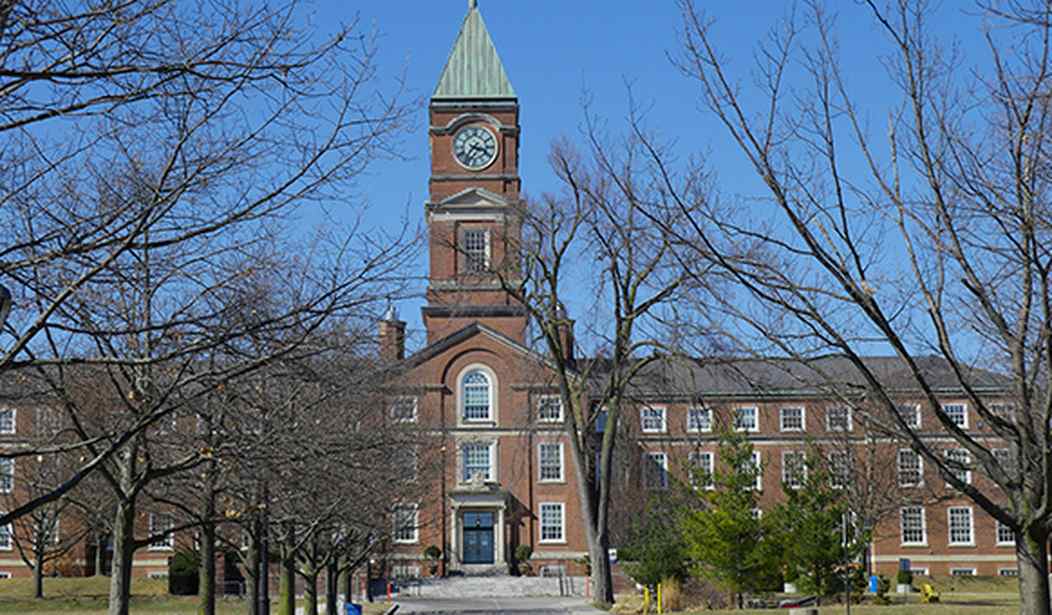Following the weekend social media circulation of clips from The Democratic Socialists of America (DSA) conference in Atlanta, and news that the political affiliation of at least one of the mass shooters leaned far to the left, the reality that more and more young people are embracing a violent form of socialism is moving from amusing to disconcerting.
A consequence of this fascination with socialism, says Charlie Copeland, president of the Intercollegiate Studies Institute (ISI), is revealed in the results of a recent poll from Insights College Pulse which shows 30% of college students believe China to be the most powerful country in the world, compared to 48% who said the United States.
“There is clearly a problem of education if you don't understand that the U.S. has a quarter of the number of people [that China has], but our economy is twice as large,” Copeland told Townhall. “Our military budget is also much larger; we have 10 carrier fleets around the world while China has one and a half. It’s a consumerism take on socialism and power. Everyone has a smart phone in their pocket that says ‘made in China’ but no one thinks about who invented the technology.”
The larger implication of young U.S. citizens embracing socialism not only shows up in the erroneous belief that China is the stronger nation shows but also in the vitriol infecting social media sites like Twitter and Facebook, as well as quite literally in the streets of the Pacific Northwest with the violence that tends to accompany Antifa rallies.
What's more, if the intimidation tactics of groups like Antifa works — and there's some evidence that suggests they are aided and abetted by social media companies that look the other way at their bullying tactics but not the retaliatory speech from conservatives (for proof, read about what happened to Senate Majority Leader Mitch McConnell's twitter account) — things could even change at the ballot box come November 2020.
Recommended
Copeland has a vested interest in trying to prevent these things from happening by meeting the purveyors of socialism on their own battlefield: the college campus.
“The word socialism has been redefined,” Copeland says while discussing how young people today are steeped in leftist ideology from the minute they enter school. “Today, students think of things like Medicare, Medicaid, and Social Security when they think of socialism,” he says. “Of course, those things are simply the social safety net, not socialism. But kindergarten, elementary, and high schools have been seeded with teachers that are coming out of universities that have faculties that are very far left and have taught them to think the same. The young people of today also came up in a time, 2008, when the economy was in crisis and they were being told just how lousy capitalism was.”
This ideological marination in command and control economics and centralized planning is particularly dangerous now that its coupled with a dwindling sense of community and a culture that encourages isolation thanks in part to technology. How, Copeland asks, are we supposed to believe tech magnates who may suffer from poor social skills themselves — hence the creation of social media sites that don't require social skills — would have created a useful communications tool that breeds real community.
Add the ever-growing pervasiveness of campus “diversity bureaucracies” that discourage empathy for others’ experiences and the result is a truly lost generation.
“And this generation has no Soviet Union showing them the ills of socialism, nor do they believe Venezuela is anything other than a dictatorship,” Copeland says. “We’ve essentially created a system where truth doesn’t exist.”
And the violence of these lost children? Apparently Antifa believes speech they disagree with is a form of violence that can be met with violence. Which could be pulled straight from Karl Marx's own political philosophy.
“Both [harsh speech and being struck in the face] produce a physical reaction,” Copeland says. “Your pupils dilate, your capillaries constrict, your heart races. That’s how they can claim ‘antifascim’ while using violence. They believe they are meeting the violence of speech with a more visceral violence.”
Copeland says helping a lost generation enamored with a bad ideology lies simply in education, fostering real interaction, and better leadership. The last, of course, is a direct nod to the democratic process.
“There’s such beauty and depth in the diversity of the human experience,” he says. “How do you develop empathy and community when the left is creating these social constructs that create walls and divide? I do believe society can be moved great ways and great distances with great leadership.”
Sarah Lee is a freelance writer and policy wonk living and working in Washington, D.C.

























Join the conversation as a VIP Member